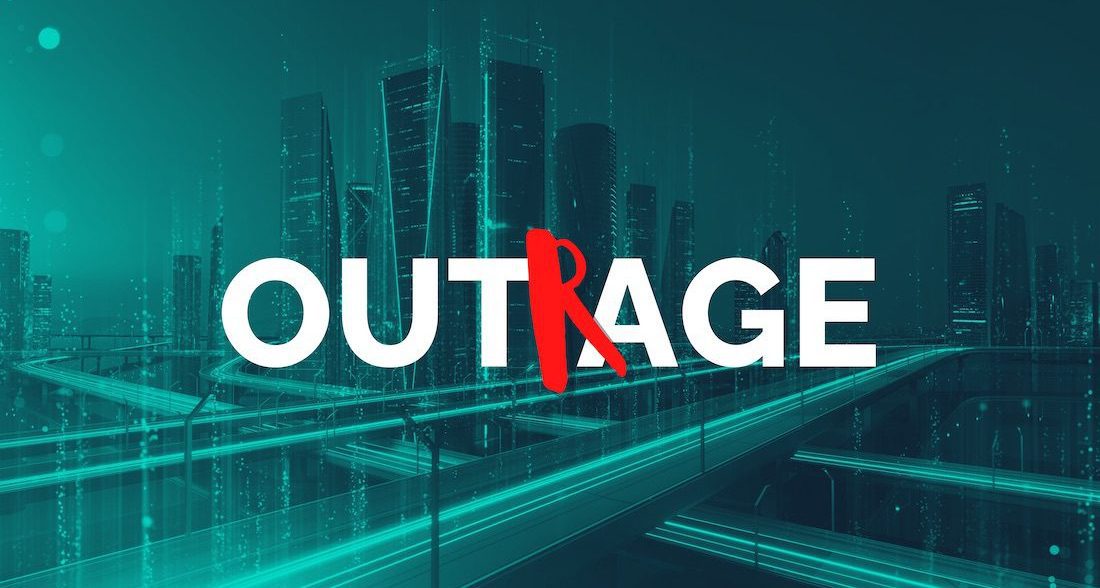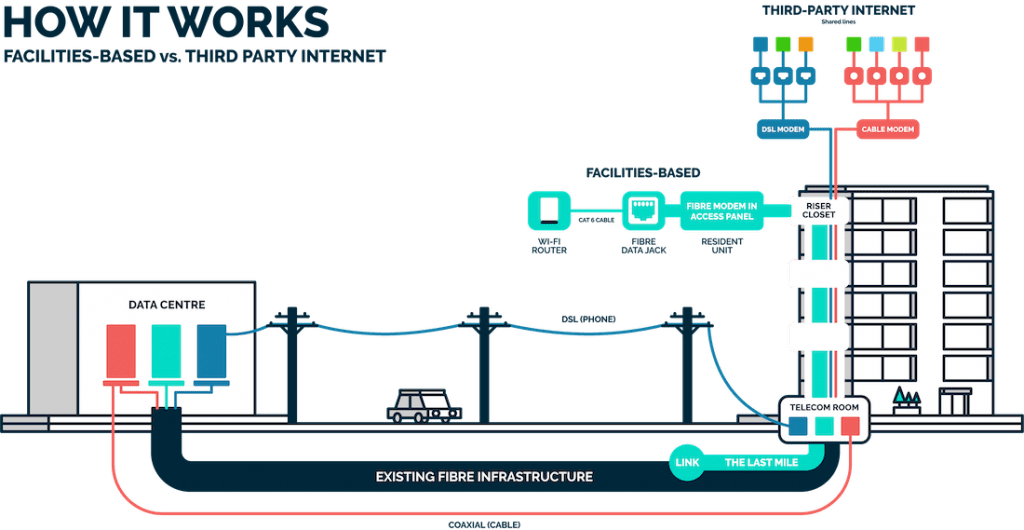
What happened? The Great Rogers Outage of 2022.
The Rogers Outage.
The Rogers nationwide outage on Friday highlighted for so many the problems that exist when one or two companies are allowed to wield too much power over so many.
While the majority of Rally customers were unaffected, a small number were impacted by this major outage; but as far as we’re concerned, even one person is too many. All our residential customers were back up again late Friday night, we continue to read that even today, the effects are not over for Rogers or some other providers.
They’ve since come out and said this was due to a ‘maintenance update’ on their end (unfortunately we don’t know much more than you do about what that means yet) – but you’ve had some questions for us so we wanted to try to explain why a Rogers outage would affect some of our customers.
At Rally, we believe in being transparent, and we also hope to educate and empower people, so they have a better understanding of the nuances and complexities of how telecoms in Canada operate, and work together to effect change in a severely broken system.
Let’s break it down…
Rally is an independently owned and operated, Canadian, Toronto-based Internet Service Provider.
We get asked this a lot, so we’ll start here. Rally is not parented by another telecom or renting their lines. We employ our own team of network engineers and technicians who install and maintain our fibre network. Our mission is to provide reliable, high-speed Internet to Canadians at a fair and affordable price. We provide Fibre-To-The-Home (FTTH), and we can determine our own prices because we own our network.
Every building we enter already has Bell and Rogers services, it comes with the territory. We strive to be the alternative third provider and offer residents a choice. We know it does not cost $100/mo+ to provide home Internet, and we think it’s outrageous to make people pay that much.
Telecommunications are federally regulated by the Government and CRTC, meaning we are licensed and there are rules we all must follow, but Big Telco – as the oldest and largest players – really run the show. They will do the minimum they are mandated or required to do – and even then, will lobby officials and fight in court to get their way.
They’ve co-created a monopoly (duopoly, oligopoly…) system and for decades, have enjoyed it unencumbered. No competition means they can charge whatever they want and have no accountability and provide inadequate support and service and there are rarely any consequences. Small Telco is a nuisance to them, because we call them out on it and highlight their shortcomings.
We operate differently, but that doesn’t mean we are completely immune when an outage of this magnitude hits. As we’ve seen, there are a lot of ways where things are interconnected, and unfortunately, with the telecommunications system we’ve got in Canada, there are not a lot of ways around that.
We all have to work with Big Telco at some point, the difference is how.
The Internet is like a highway.
Picture a super-highway running beneath us, a series of roads weaving and connecting us all together. The Canadian Government, in part, invested tax dollars to fund the upgrade of our old infrastructure to build and maintain the Internet we all use and so, in effect, this “Internet super-highway” belongs to everyone. Though it is “owned” and operated by the big providers, it exists with government oversight and (your) money.
Incumbents like Bell and Rogers inherited the main stretch of road simply because they existed in a now bygone era of cable and telephone lines. They were in the right place at the right time, had the means and resources to build it – and they continue to have powerful friends.
In the spirit of “competition” it was mandated that independent ISPs were permitted to drive on those roads too. The incumbents are required by the CRTC to provide everyone with access to the main highway. Big Telco weren’t too happy about it, and that’s where things get a little complicated.
The way Rally connects to the highway is what sets us apart.
Rally is a facilities-based ISP, that means we install a fibre “link” to the main highway and pull our own fibre from the street to the telecom room, straight up the backbone of your building and then all the way to your suite. This is often referred to as the “Last Mile” – it’s like we build an off-ramp straight to you.
The Last Mile is considered the most important and expensive part of the road. Having a dedicated fibre line to your home ensures you don’t experience bottlenecking or having to share a line with others and allows for faster data speeds and larger bandwidth. We provide our own support and control over our data centre and fibre lines we install; we only have to talk to Big Telco if something happens on the main road (like if it all goes down.)
Then what is a “reseller” or Third-Party Internet?
Other small ISPs that provide Third-Party Internet Access (TPIA or “Wholesale”) generally means they are leasing the entire road including the off-ramp and all the way to your home. They buy the service in bulk at a discounted rate and pay monthly fees to Big Telco.
It may be called “Hybrid Fibre” or “Fibre-to-the-Building/Node/Neighbourhood” because typically the Fibre line ends, say, at the street, and then uses Coaxial (cable) or DSL (phone) for the Last Mile. Rally does not sell wholesale Internet service.
Big Telco is NOT mandated to (and so does not) lease Fibre-To-The-Home.
The wholesale Internet rate for Coaxial and DSL Internet is determined by the CRTC and ultimately affects TPIA pricing and their bottom line. The wholesale rate or “rental fee” is then passed on to the subscriber, (you may have read about this issue in the media.)
A TPIA customer would be getting the same service as a Rogers or Bell customer living next door, but because they buy it in bulk at a discounted rate, they are able to pass along some savings to the consumer that is less than the incumbent retail rate (say, $90/mo instead of $125/mo). They typically provide their own – better – customer service, but control over the network, speeds, and any degree of network support lies with Big Telco.
That’s why TPIA can offer their services more widely than we can, and many are still experiencing issues from the outage.
(Note: We have no beef with TPIA players, we think what they are doing is VERY important and support their fight for fairness on lowering mandated wholesale rates, we just want to make the distinction.)

Why only Condos then?
There is a significant financial investment we make as a business for each building we connect, from the link to the fibre pull, the hardware to marketing. This cost determines our ability to expand and add buildings to our network and is why we select multiple-dwelling units (MDUs) like condominiums, apartments, and other residences where we can offer our fibre to hundreds of people at once, over single-detached units (SDUs) or detached homes.
Few smaller ISPs could afford an undertaking such as digging up streets and laying more fibre and still stay in business. We do not charge anything to the building itself to deploy our fibre services, so we must carefully evaluate where we expand, to ensure that there is enough appetite and demand for our services to help us cover that investment.
Got it. So, what happened?
Okay, so to recap: the main super-highway is built, Big Telco are the guardians and caretakers, but you helped pay for it, so they are required to share it with everyone, even if they don’t like it.
At the one end, we have our own data centre located in Toronto, at Canada’s largest carrier hotel, where several major telecom, ISPs, and content companies exchange traffic (peer) between their respective networks.
At the other end, we work with various partners to connect our ‘link’ to the main highway. Because the industry is designed to favour Big Telco, it’s often with whoever is closest and being the most reasonable to work with – Big Telco may have to do it, but they certainly don’t make it easy for us.
In a few cases, we have worked with Rogers provide our link. So, when a major crash – or outage – occurs where they control the main highway, all the traffic stops, even ours.
What happens next?
We will, without question or hesitation, compensate those customers who experienced lost or interrupted service on Friday. Full stop. In the coming days we’ll be crediting the accounts of the affected customers.
Rally is all about bringing people together and helping you to stay connected and offering more CHOICE to more people.
The system may be rigged to see Big Telco win and let them try to keep the small ISPs out of their way so they can gouge on price and provide sub-par service – at Rally, we work harder every day to effect a change.
We’re small but mighty! We continue to invest in our network technology to make it stronger, faster, more reliable while also speaking out on the issues that we face as a business, and you as a consumer – and all of us as people endure when these giants are allowed to have this much power and control over an essential service.
If at any time, day or night, you ever experience any issues with your speed, service, or just want to ask us a question – the Rally Team is available 24/7 to help you. We’re also all around on social media fighting the good fight, you can follow and add your voice as we DEMAND FAIR Internet for Canadians.
Our tagline is Take Back the Internet because we believe that affordable high-speed Internet access is a right, not a privilege – and it belongs to you, not Big Telco.
—
Rally is a local and independent Internet Service Provider with over 20,000 condominiums ready to Rally in Toronto and the GTA. With more than 20 years of experience serving Canadians with leading-edge broadband solutions, we’re providing CHOICE by delivering affordable service on our own fibre network.
Rally is licensed by the CRTC, and a proud member of CNOC (Competitive Network Operators of Canada)

